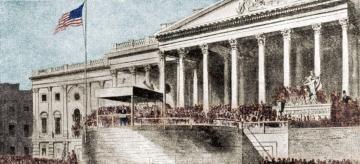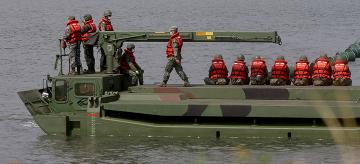
Simulation
Unrest in Bahrain in 2014 (NSC)
Set in August 2014. Political unrest in Bahrain has led to a government crackdown.









A learning journey is a student facing, curated collection of resources that explore a topic from a specific perspective.

In this series of historical mini simulations, students step into the shoes of policymakers to advise the U.S. president on how to respond to major foreign policy moments in U.S. history.

Explore Taiwan’s relationships with the United States and China. Then take part in a national security simulation to help avoid future conflict.

Explore this collection of learning resources to understand trade relations between the United States and China.